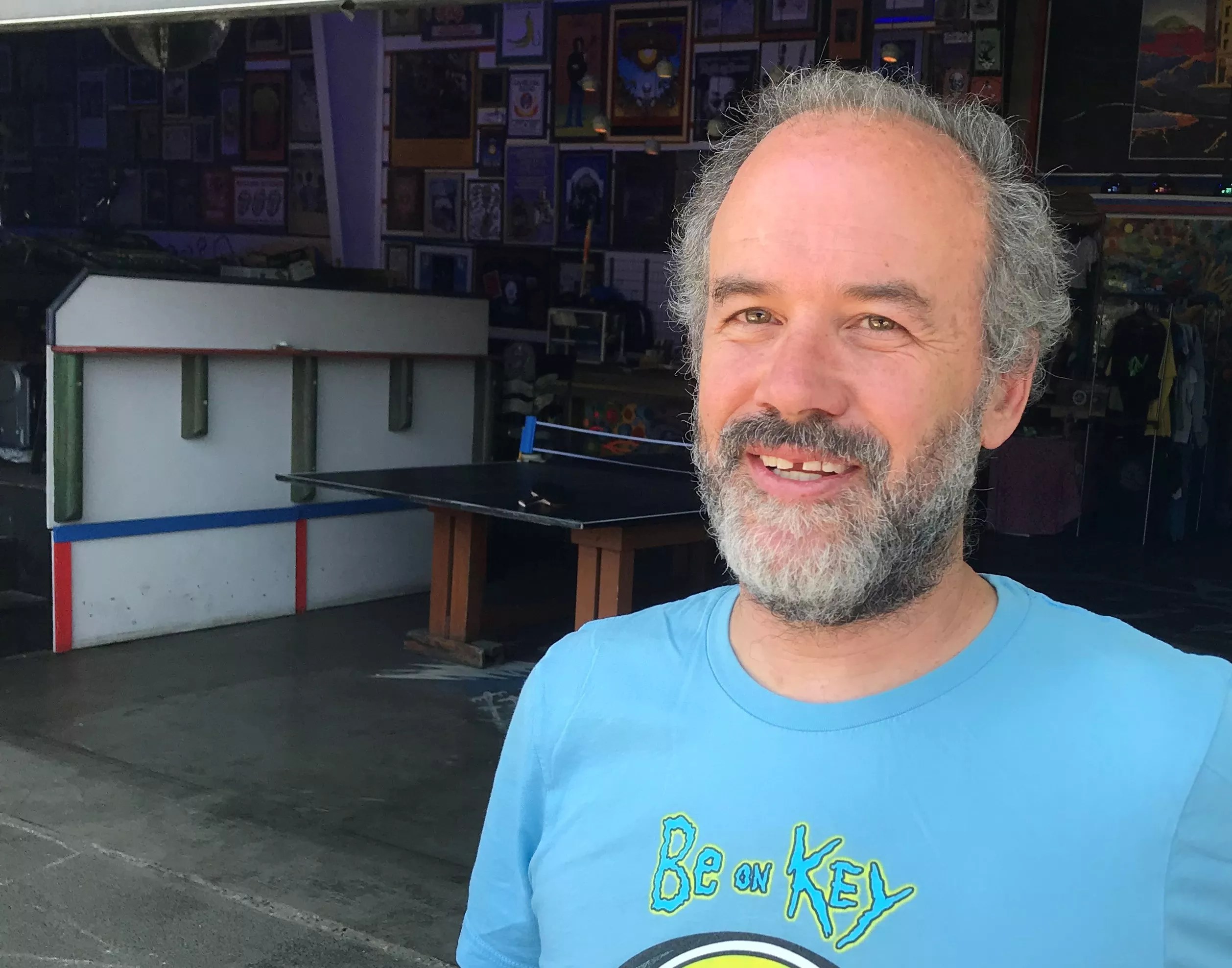
Kyle Harris

Audio By Carbonatix
After months of delays and years of rumors, one of Denver’s most recognizable nightclub impresarios will be back in Denver District Court today. Jay Bianchi is on trial for a series of alleged sexual assaults; he’s been accused of drugging victims by spiking their drinks before raping them.
Here’s what to know about the trial, which is expected to last three weeks.
Who is Jay Bianchi?
For more than twenty years, Jay Bianchi was the tie-dyed face of Denver’s jam-band nightlife. He opened and ran a constellation of Grateful Dead–themed bars: Quixote’s True Blue, Owsley’s Golden Road and, most recently, So Many Roads Brewery. His flagship, Sancho’s Broken Arrow, was a kind of cathedral for Deadheads — dim lights, cheap beer, endless riffs.
For years, his name was shorthand for that scene. But as venues opened and closed under his ownership, complaints piled up: unpaid bands, liquor-license issues, city nuisance filings and, finally, criminal accusations that ended his run as Denver’s jam-bar impresario.
Why is he on trial?
Bianchi has been charged with eight felony counts: six for sexual assault and two for second-degree assault causing injury by administering an intoxicant. Prosecutors say he drugged women and assaulted them while they were incapacitated, sometimes at or after hours in his own venues.
Two women are at the center of the case, their accounts describing sudden blackouts after a drink or two and waking up disoriented and hurt. One told police she woke up in a basement; another remembered flashes of a night she couldn’t piece together. Toxicology screens later showed traces of sedatives. Bianchi insists the encounters were consensual and denies ever spiking anyone’s drink.
How’d we get here?
The allegations follow years of turbulence across Bianchi’s bar network. Sancho’s Broken Arrow was shuttered in 2022 after city investigators linked it to cocaine sales and repeated code violations. Before that, Owsley’s Golden Road and Quixote’s True Blue had faced their own regulatory battles. Westword reported musician complaints about low pay and exploitative culture at his clubs — scenes where the party never stopped, even when it should have.
By 2023, multiple women had gone to police with similar stories: a drink, a blur and a missing night. Denver prosecutors spent months assembling what they describe as a pattern of conduct.
How long will the trial last?
The trial, which started on October 20, is expected to run through early November. Bianchi’s team waived his right to a speedy trial this spring in order to allow for expert testimony and evidence review.
The list of witnesses is long: former bar employees, detectives, toxicologists and the women themselves, who’re expected to testify to what happened inside those bars that once defined Denver’s jam-band era.
What’s happened so far?
Opening statements began on Tuesday, October 21. Prosecutors told jurors that Bianchi used his position and his bars as hunting grounds — that he supplied the alcohol, the setting and the isolation that allowed the assaults to happen. The defense argued that Bianchi has been destroyed by rumors, that no physical evidence proves he drugged anyone, and that the women’s stories have been distorted by years of gossip.
Early testimony included detectives recounting victim interviews and medical reports referencing sedatives found in toxicology screens. By the end of the week, jurors began hearing from the victims themselves, and that testimony is expected to continue this week.
For a man who once soundtracked Denver nights with endless covers of “Scarlet Begonias,” this trial is a brutal coda — a reckoning for the city’s Deadhead culture and the blurred lines that long defined it.